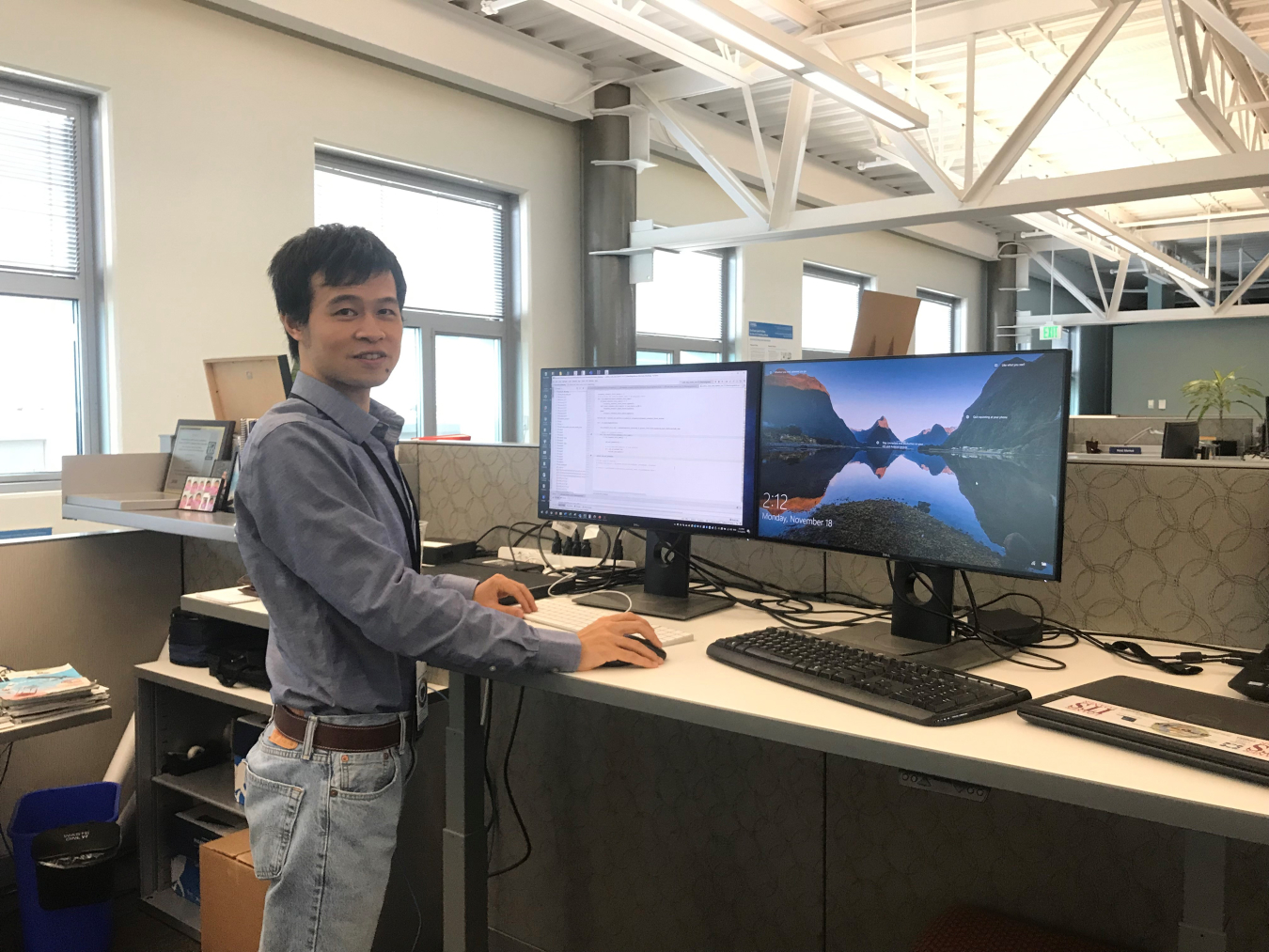Learn how Jianli Chen became a leader at the National Renewable Energy National Laboratory in Artificial Intelligence work.
November 18, 2019
Growing up in a small town in China surrounded by mountains, Jianli Chen felt like his town was rich in natural beauty but poor in technology and infrastructure. As a teenager he became motivated to become a civil engineer, a career that would enable him to learn to create buildings and bridges to help shape his community.
Jianli began his engineering education at Dalian Jiaotong University, a 10 hour drive from Beijing. There Jianli earned a B.E. in Civil Engineering and Computer Engineering, and discovered a love of research that took him to the United States to seek his Master’s degree from Virginia Tech in Civil Engineering.
That’s when AI – artificial intelligence – started seeping into his work. Jianli’s research sought to integrate sensing information to help facility managers with bridge de-icing processes. “In Virginia, sometimes bridges become dangerously slippery and iced over,” Jianli explained. “Faculty at the college wanted to build a de-icing system for the bridges and provide an interface for facility managers to monitor and possibly predict the icing risks of bridges and alert the drivers.”
Through Jianli’s research on this issue, he began to see the power of computing to impact this space, and wanted to keep advancing his knowledge about computing so he could work on AI issues throughout his career. After completing his Master’s degree at Virginia Tech, he moved to the Georgia Institute of Technology for a second Master’s in Computational Science and Engineering.
“I think I can do more, and learn more about computing,” Jianli said. “AI is impacting our lives and makes our lives better. That led me to think, why can’t we use AI to make our buildings better?”
At Georgia Tech, he began developing intelligent building control and utilization of natural ventilation to increase the energy efficiency and occupant health of buildings, and went on to earn a Ph.D. in Building Construction from the school. During his time at Georgia Tech’s research group, Jianli became aware of the U.S. Department of Energy National Laboratory system, particularly through his school’s collaboration with the Oak Ridge National Laboratory.
In 2018, he spotted a posting online for a job at the National Renewable Energy Laboratory (NREL) and quickly applied, as he was hoping to get engaged in renewables. Now, Jianli’s research focuses on grid interactive efficient buildings, large scale stochastic building load simulation, and application of artificial intelligence for smart buildings.
“We have many interesting things at NREL that inspire me to work in AI,” Jianli said. One of those interesting things to him is working to utilize machine learning algorithms to inform occupant-driven energy consumption and integrate renewable energy controls for the residents, equipping residential buildings with better decision making tools. Jianli is now working in a smart community project that builds a group of over 500 homes in Fort Collins, Colorado, from scratch in the next couple years.
Jianli said that computer science and statistics courses are important to getting into an AI career. “Develop the mental understanding of algorithm that you can apply to AI work,” he said. “It is beneficial to take the basic courses, and important to understand the thinking behind algorithms.”
Jianli thinks a computer science degree is beneficial for people to get into AI work, but there are other options if you’re looking for an alternative. “It is not necessary to have a college degree in AI as there are a lot of online courses to get an understanding of AI,” he added.
If you’re looking at going into an AI career, Jianli has some advice for you. “Keep asking questions. Don’t hesitate to ask a question. Others can give you good advice and understanding that would be very beneficial for you to work in these fields.”
And, practice your work as much as possible. “Don’t skip the practice, be serious about it. Keep your knowledge updated and keep learning – there’s huge amounts of information in this field coming out every day. Talking to other AI researchers,” Jianli said.
Learn more about the Department of Energy’s work in AI and the AI workforce behind it here.


